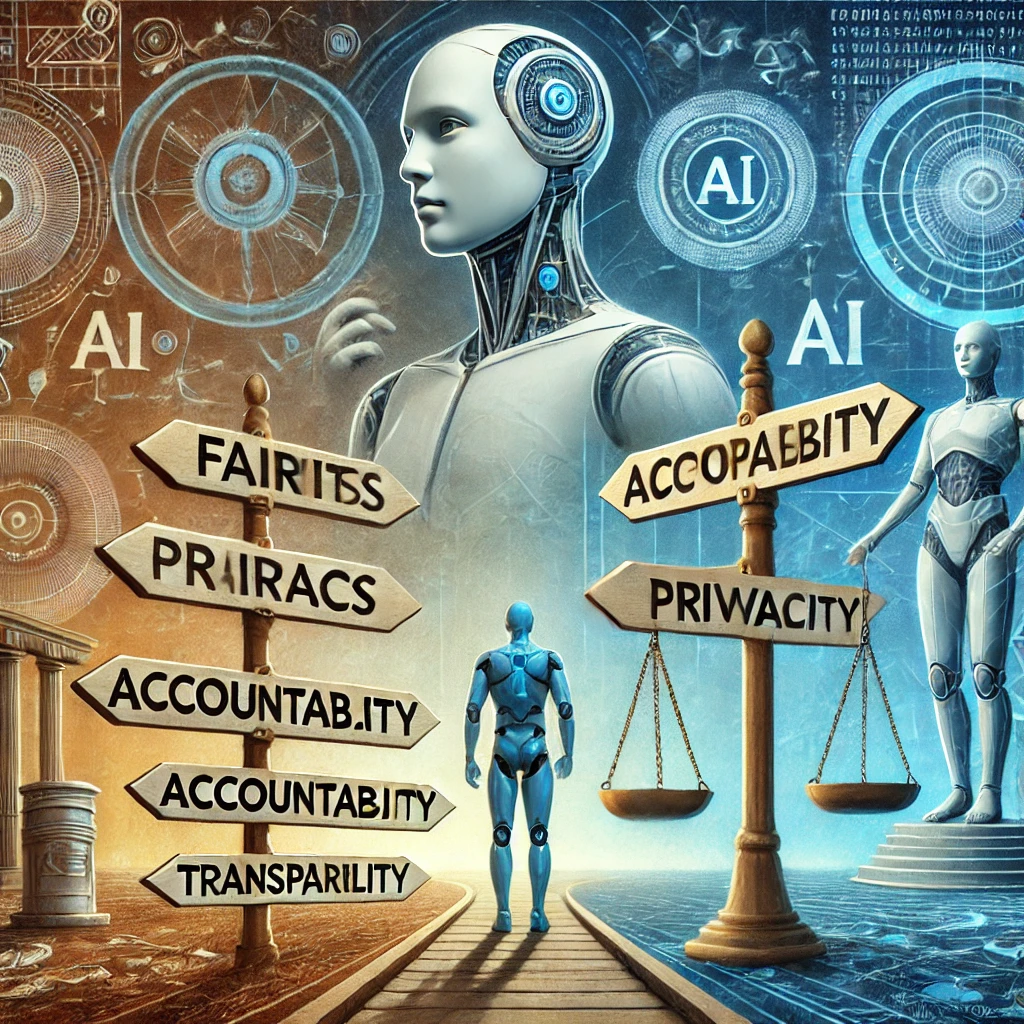Blockchain technology, originally created as the foundation for cryptocurrencies such as Bitcoin, has evolved into a groundbreaking innovation that extends far beyond its initial purpose. Essentially, blockchain is a decentralized and secure digital ledger that logs transactions in a manner that is transparent, unchangeable, and resistant to tampering. These attributes make it a valuable tool for a wide range of industries, including finance, supply chain management, healthcare, and even governance.
In this article, we will explore the concept of blockchain technology, its distinct features, and how it is being utilized across different sectors to tackle complex issues and create new opportunities.
What is Blockchain Technology?
Blockchain is a type of distributed ledger technology (DLT) that records transactions across a network of computers, or nodes, in a way that ensures security, transparency, and trust. Unlike traditional databases, blockchain functions without a central authority, instead using consensus mechanisms to validate and add new data.
Key Features of Blockchain:
- Decentralization: Data is recorded on multiple nodes, reducing the risk of a single point of failure.
- Immutability: Once added, data cannot be changed or erased, ensuring a system that cannot be tampered with.
- Transparency: All network participants have access to the same data, promoting trust and accountability.
- Security: Transactions are encrypted and verified through consensus mechanisms, making it difficult to hack.
These features make blockchain particularly suited for industries that require secure, transparent, and efficient systems.
Applications of Blockchain in Finance
The financial sector was one of the first to adopt blockchain technology, recognizing its potential to streamline processes, boost security, and cut costs.
Cross-Border Payments
Traditional cross-border payments involve intermediaries such as banks, leading to high fees and delays. Blockchain technology removes the need for intermediaries by enabling direct transactions. Platforms like Ripple use blockchain to facilitate almost instant international money transfers at lower costs.
- Example: Ripple’s XRP Ledger allows financial institutions to settle cross-border transactions in real-time, with lower fees compared to traditional methods.
Decentralized Finance (DeFi)
DeFi is a blockchain-based financial ecosystem that offers decentralized alternatives to traditional banking services. Through smart contracts, DeFi platforms enable activities like lending, borrowing, and trading without intermediaries.
- Example: Platforms like Uniswap and Aave let users trade cryptocurrencies, earn interest, and access loans without relying on traditional banks.
Fraud Prevention and Identity Verification
Blockchain’s transparency and immutability are perfect for fraud detection and identity verification. By recording transactions on a secure ledger, blockchain reduces the risk of fraud and simplifies Know Your Customer (KYC) processes.
- Example: Civic uses blockchain to provide secure digital identity verification, allowing users to control and share their information without centralized systems.
Blockchain in Supply Chain Management
Supply chain management is one of the most promising areas for blockchain, addressing issues like lack of transparency, inefficiency, and fraud.
Enhanced Traceability
Blockchain allows for end-to-end traceability in supply chains, enabling stakeholders to track the origin, movement, and authenticity of products. This is especially beneficial for industries like food and pharmaceuticals, where provenance and quality are crucial.
- Example: IBM’s Food Trust uses blockchain to trace food products from farm to table, ensuring transparency and reducing foodborne illnesses. ## Combating Counterfeit Goods
Blockchain technology offers a reliable method to verify the authenticity of products, combating the spread of counterfeit items. Each product can receive a unique digital identity on the blockchain, which both consumers and retailers can check for authenticity.
Example: Everledger employs blockchain to confirm the authenticity of diamonds, ensuring they are ethically sourced and preventing fraud.
Streamlining Logistics
With blockchain, supply chain processes can be automated and optimized using smart contracts. These contracts execute automatically when certain conditions are met, reducing delays and eliminating the need for manual paperwork.
Example: Maersk’s TradeLens platform uses blockchain to digitize shipping documents and streamline international trade.
Healthcare: Secure and Efficient Data Management
Blockchain has the potential to revolutionize healthcare by addressing issues related to data security, interoperability, and patient privacy.
Secure Health Records
Blockchain ensures that electronic health records (EHRs) are secure, cannot be tampered with, and are accessible only to authorized individuals. Patients can control who has access to their medical data, enhancing privacy and security.
Example: Medicalchain uses blockchain to securely store patient records, allowing seamless sharing between healthcare providers with the patient’s consent.
Drug Traceability and Clinical Trials
Blockchain enhances transparency in pharmaceutical supply chains, preventing counterfeit drugs and ensuring regulatory compliance. It also ensures the integrity of clinical trial data by providing an unchangeable record of trial results.
Example: Chronicled uses blockchain to track pharmaceuticals throughout the supply chain, ensuring quality and compliance.
Telemedicine and Remote Monitoring
Blockchain supports secure data sharing between patients and healthcare providers in telemedicine. It also aids in real-time patient monitoring through wearable devices and IoT sensors.
Blockchain in Governance and Voting
Blockchain can enhance governance and electoral processes by improving transparency, reducing fraud, and increasing trust in systems.
Transparent Voting Systems
Blockchain can create secure voting platforms where votes are recorded immutably and verifiable by all participants. This reduces the risk of election tampering and increases voter confidence.
Example: Voatz has implemented blockchain-based voting systems in pilot programs to enable secure remote voting.
Land and Property Records
Blockchain can simplify land registry management by providing a tamper-proof record of property ownership. This reduces fraud and ensures transparency in real estate transactions.
Example: The government of Georgia uses blockchain to maintain its land registry, providing a secure and efficient system for recording property ownership.
Emerging Use Cases for Blockchain
Blockchain is being explored in new and innovative fields beyond its established applications.
Renewable Energy Trading
Blockchain enables peer-to-peer energy trading, where individuals can sell excess solar or wind energy directly within their community.
Example: Power Ledger uses blockchain to create decentralized energy markets, allowing efficient and transparent energy trading.
Intellectual Property and Digital Rights
Blockchain can protect intellectual property by providing unchangeable proof of ownership and enabling transparent royalty payments for creators.
Example: Blockchain Creative Labs helps creators monetize their content through blockchain-powered platforms.
Charitable Donations
Blockchain increases transparency in charitable giving by ensuring that donations are tracked and used as intended.
Example: AidCoin allows donors to track how their contributions are spent, increasing trust in charitable organizations.
In conclusion, blockchain technology is proving to be a transformative force across multiple industries, enhancing security, transparency, and efficiency in various processes.
Challenges and Limitations of Blockchain
Blockchain technology, despite showing great promise, encounters several obstacles that need resolution for it to be widely accepted:
Scalability
Present blockchain systems may struggle with processing a high number of transactions, causing delays and increased costs.
Energy Consumption
Some blockchains, like Bitcoin, utilize proof-of-work consensus methods that demand extensive computational power, leading to environmental concerns.
Regulatory Uncertainty
Governments worldwide are still developing regulations for blockchain, creating a sense of unpredictability for businesses.
Interoperability
Numerous blockchain platforms function independently, complicating the integration of data between different networks.
Conclusion
Blockchain technology is swiftly advancing from merely supporting cryptocurrencies to becoming a core technology across various industries globally. Its use in areas such as finance, supply chain management, healthcare, and governance highlights its potential to enhance efficiency, transparency, and trust.
As issues like scalability and regulatory clarity are resolved, blockchain will continue to open new opportunities and transform how industries function. By adopting blockchain, businesses can remain at the forefront, using its advantages to foster innovation and generate value for stakeholders in an ever-evolving landscape.




